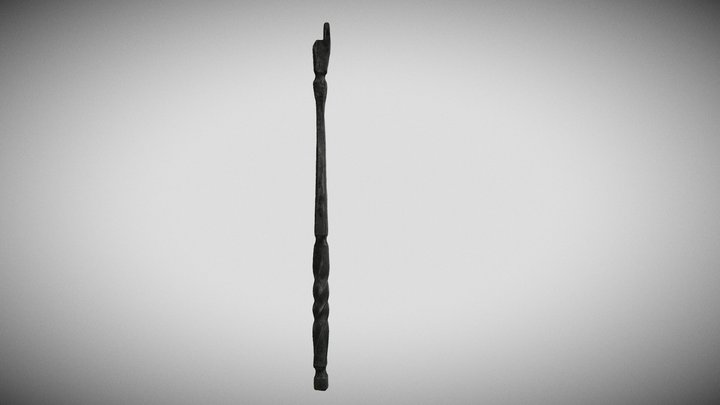
Torah Shield
ca 1779 — 1780
Museum of the history of Polish Jews
Part of the collection: Atary from Sądecczyzna
The presented atara has rounded side edges. The pattern is arranged in nine triangular shapes at the top and bottom, they are separated by ten diagonal bands (in an alternating direction). There are clearances between the elements of the pattern and a narrow strip of edging runs along the entire rim.
The atara was probably used in Nowy Sącz, a town very important for the Jewish community in Poland. From the 19th century, Nowy Sącz was an important Hasidic center, tzaddik Chaim Halberstam had his manor there, his successors settled in Bobowa.
The Hasidic Jews were distinguished by an extremely orthodox approach to religiosity and customs, which even some other Hasidic groups did not agree with. Today, the descendants of Tzadik Halberstam live in Israel and New York. Before the outbreak of World War II, the Jews in Nowy Sącz constituted 1/3 of the town's population. There were thriving cultural, economic and political institutions. The orthodox Aguda was the strongest political party. You can read more about political movements and other important spheres of Jewish life in Nowy Sącz on the Virtual Shtetl website:https://sztetl.org.pl/pl/miejscowosci/n/538-nowy-sacz/99-historia-spolecznosci/137763-historia-spolecznosci.
Natalia Różańska
Author / creator
Dimensions
cały obiekt: height: 93 cm, width: 12,5 cm
Technique
embroidery, sewing
Material
fabric
Creation time / dating
Creation / finding place
Owner
POLIN Museum of the History of Polish Jews
Identification number
Location / status

ca 1779 — 1780
Museum of the history of Polish Jews
ante 1850 — 1939
Museum of the history of Polish Jews

ca 1901 — 1950
Museum of the history of Polish Jews
DISCOVER this TOPIC
Castle Museum in Łańcut
DISCOVER this PATH
Educational path